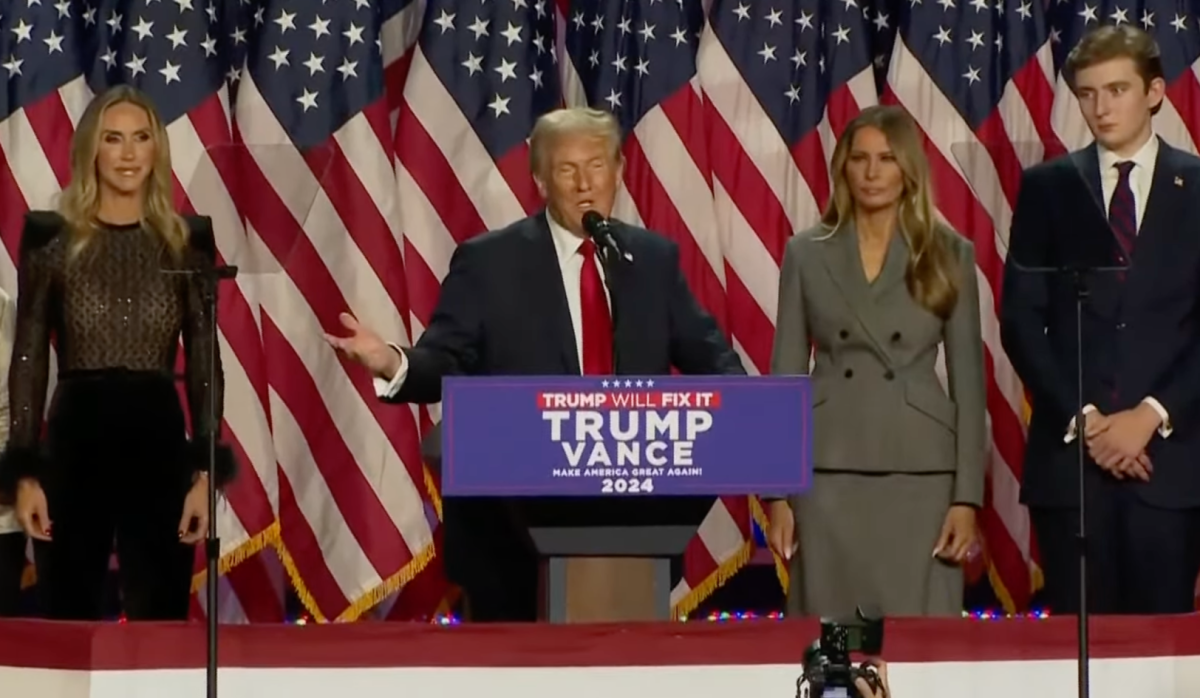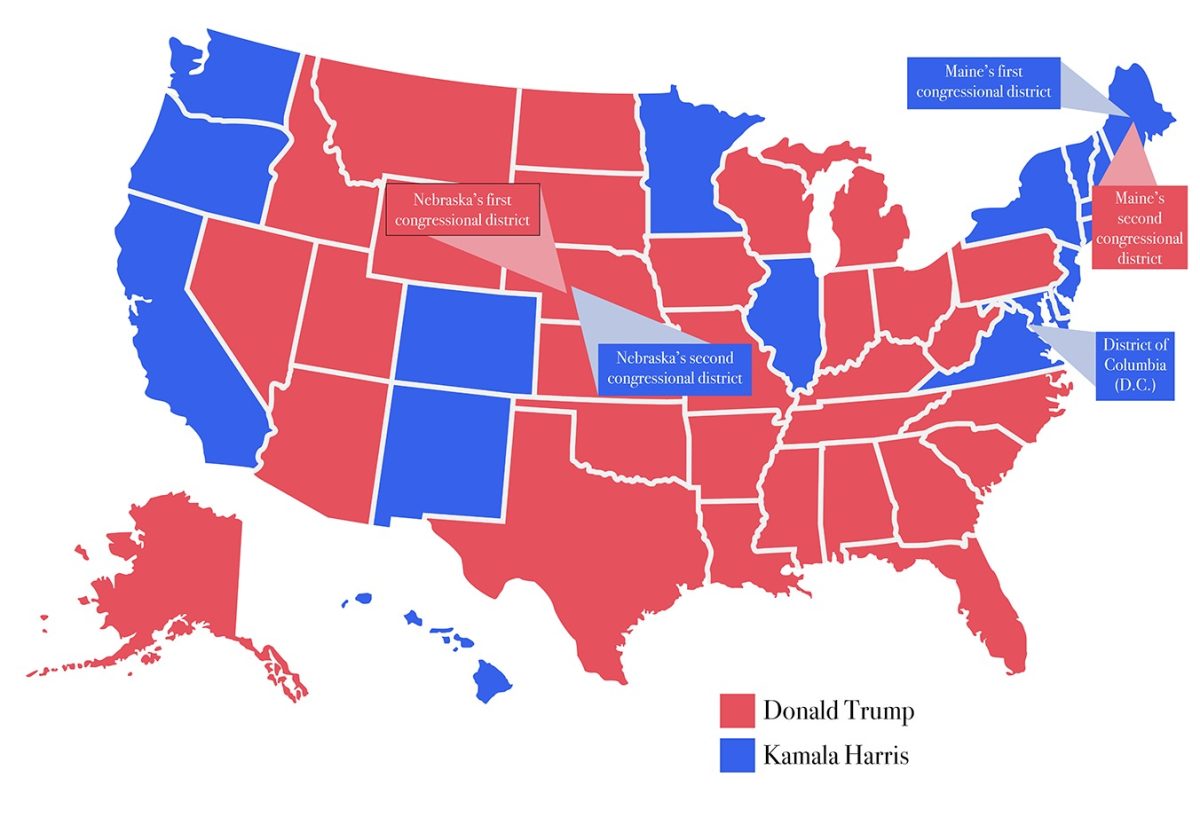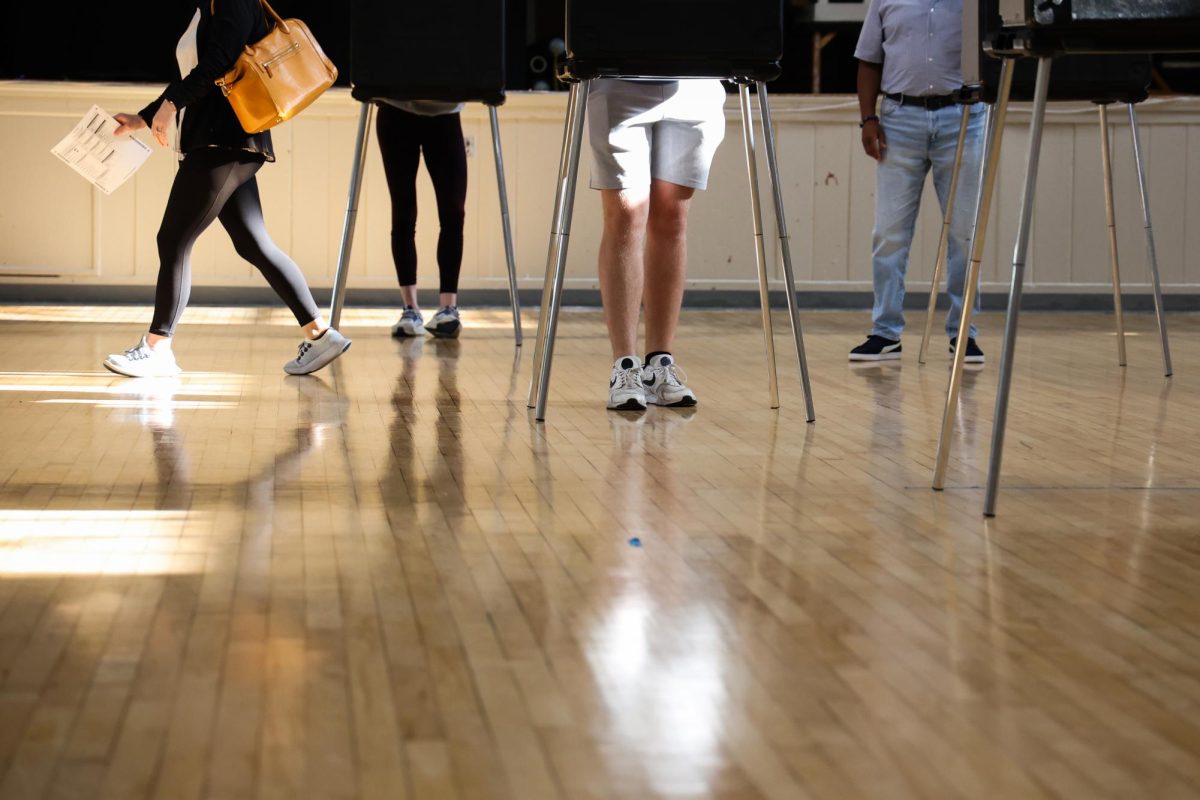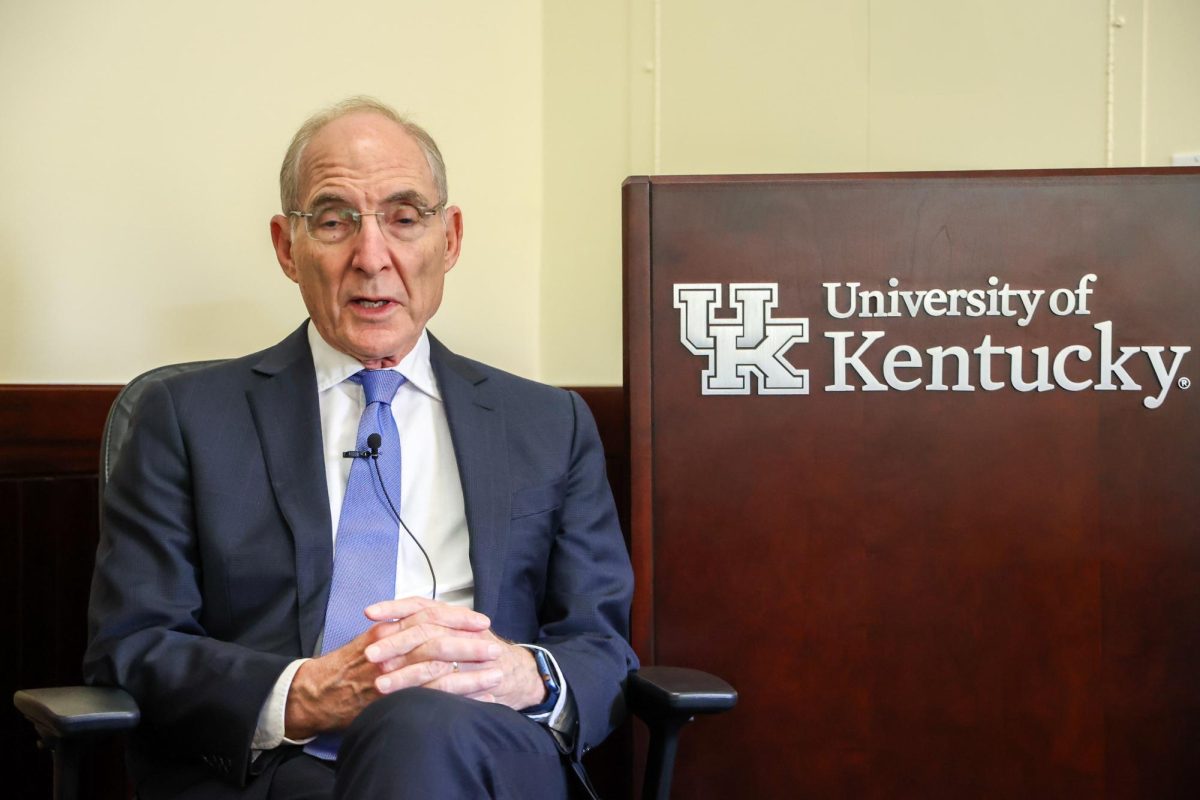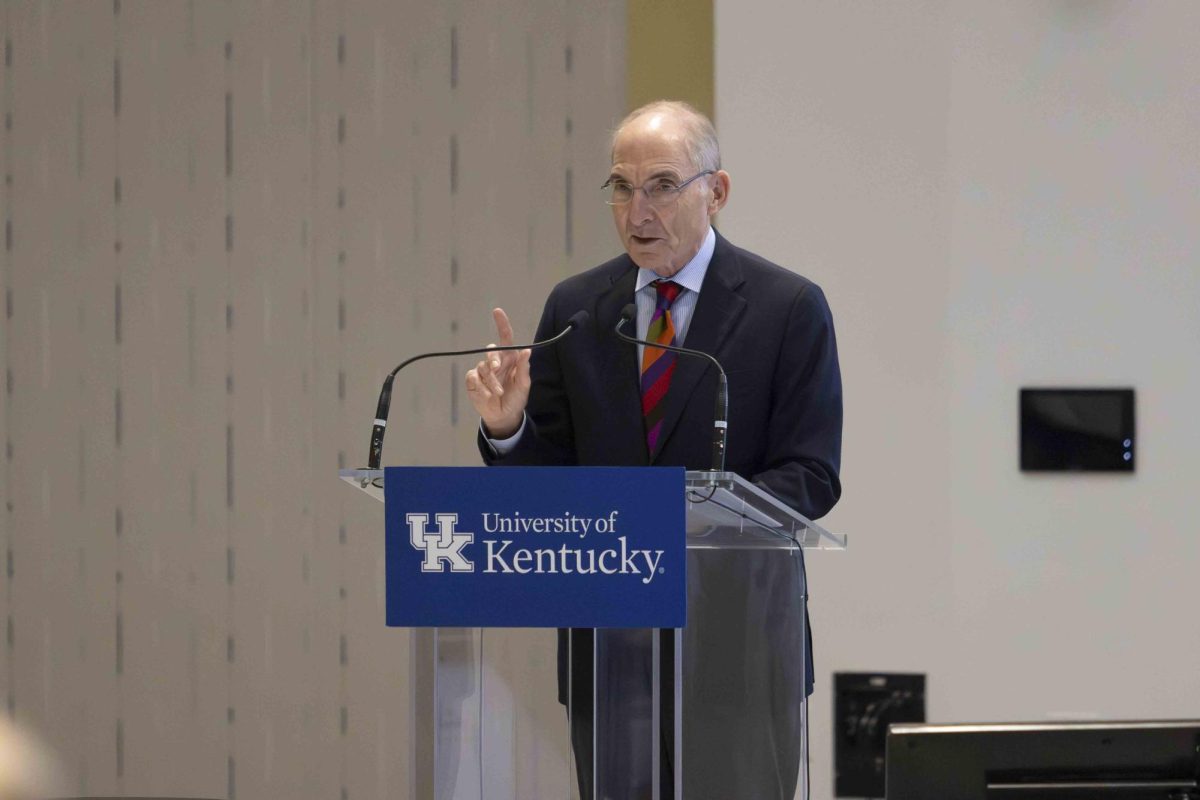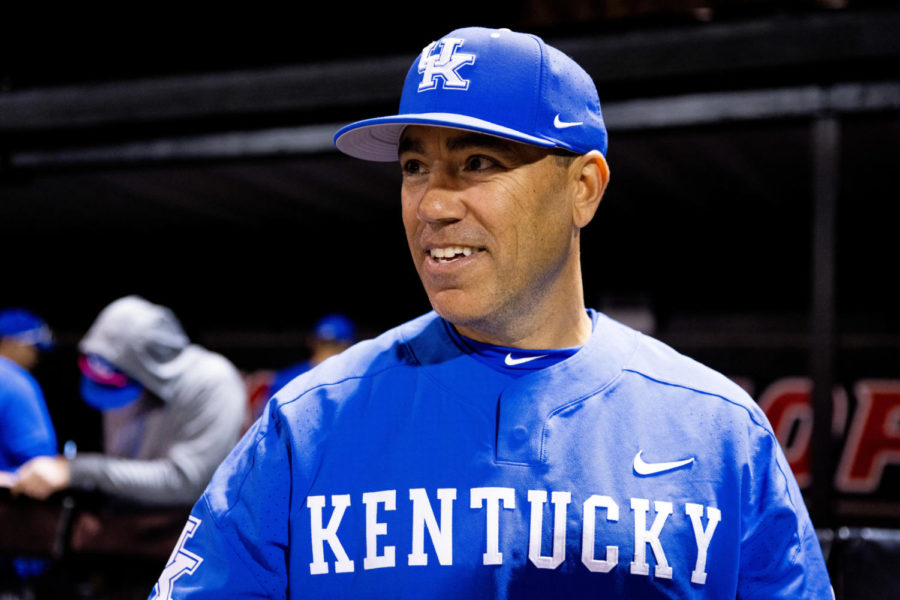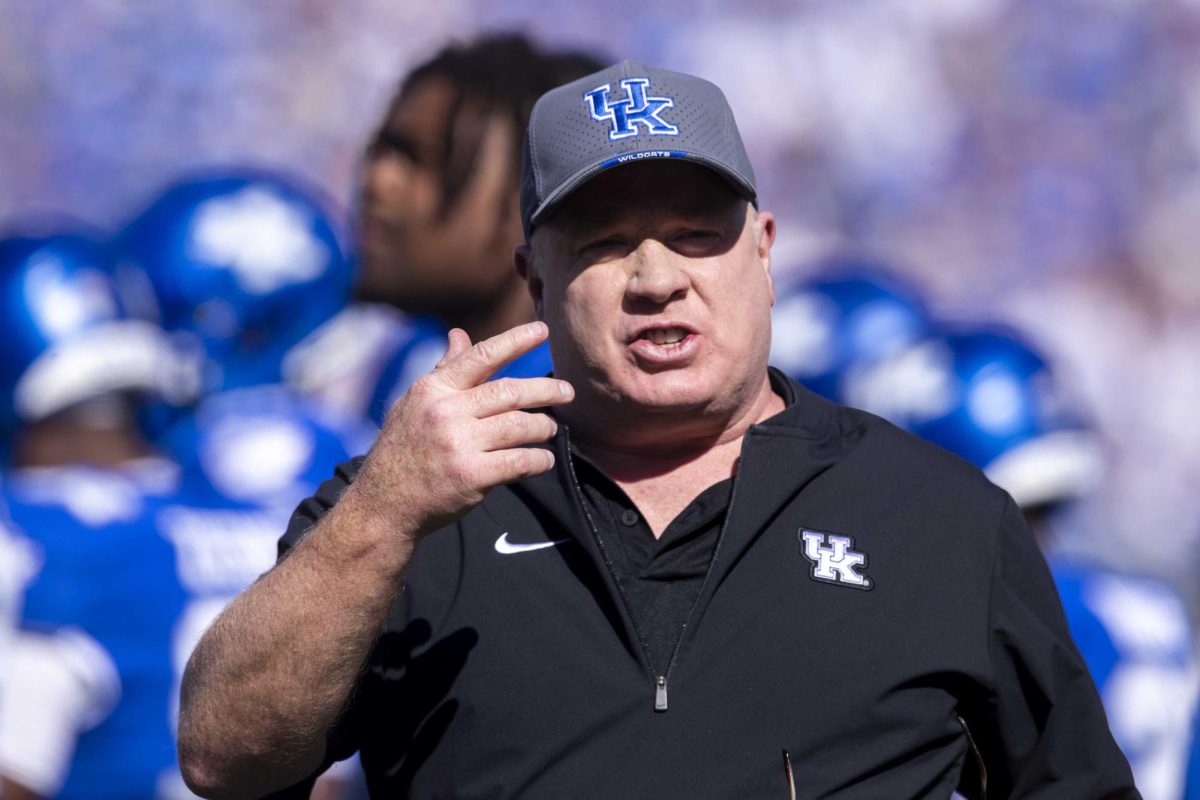Legislature overrides governor’s vetoes as 2021 session ends
A person walks up the ice covered step of the Kentucky State Capitol on Friday, Jan. 29, 2021, in Frankfort, Kentucky. Photo by Michael Clubb | Staff.
April 9, 2021
Tuesday, March 30, was the last day of Kentucky’s General Assembly, the legislative session for the state’s House of Representatives and Senate. The final two days of the session were busy as lawmakers pushed through final versions of bills and overrode most of Gov. Andy Beshear’s vetoes to bills passed earlier in the month.
Beshear vetoed 27 bills, including a controversial addendum to Kentucky’s Open Records Act that would shield lawmakers’ documents from requests.
Kentucky’s House of Representatives overrode that veto 66-29 and was followed up in similar fashion by the Senate, which voted 22-16 to dismiss the veto.
Lawmakers then went on to override another 23 of Beshear’s vetoes, including some line vetoes from the state budget, which was passed. Legislators overturned Beshear’s objection to a part of the budget that forbids state employees from enforcing mandates not enacted by the state legislature, such as the governor’s emergency orders and mask mandates.
One of the most significant overrides was Senate Bill 228, which relates to vacancies in the U.S. Senate. The House voted 70-24 and the Senate 29-8 to overturn Beshear’s objection to the bill:
SB 228 – Power to fill Senate vacancies
Senate Bill 228, passed by both chambers of the Kentucky legislature in spite of a gubernatorial veto, changes the succession process for vacancies in the U.S. Senate. Should one of Kentucky’s senator positions be vacant, this bill requires the governor to choose a replacement from a list of three names provided by members of the previous senator’s political party. In effect, the bill strips the independent power of Gov. Beshear to temporarily appoint someone to fill a U.S. Senate seat.
The temporary appointment would last until a special election, provided for in the bill, could take place. Members of any political party can run in the replacement election, which would have a primary and then a run-off of the top two vote getters if no candidate received a majority of votes.
Kentucky Senator and U.S. Senate Minority Leader Mitch McConnell backs SB 228, which could be of national importance since the Senate is currently split 50-50 between Republicans and Democrats. Gov. Beshear has declared this bill to be unconstitutional, meaning a potential court challenge may be in the near future – though the governor is already involved in court challenges to his emergency orders during the COVID-19 pandemic.
HB 574 – Election reform Bill
Kentucky’s 2021 legislative session produced this bill that, unlike election bills in states like Georgia, has received bipartisan support and broad approval in making elections moree accessible.
HB 574 provides for three additional days of in-person voting in Kentucky – the Thursday, Friday and Saturday before election day. Kentuckians will also now be allowed to cast their votes at voting centers outside of their precincts.
Some of these measures were instituted for 2020 elections as a result of the COVID-19 pandemic, which created a new landscape of how an election can be conducted. With mail-in ballots and weeks for early voting, many Kentuckians said the accommodations for the pandemic were convenient for every year. Parts of the bill extend the state’s online absentee ballot request portal and provide for absentee ballot dropboxes.
HB 574 also prohibits tax dollars from being spent to influence public opinion for ballot questions and elections.
“At a time when democracy itself is under attack, Kentucky is showing what is possible when leaders recognize the importance of a well-functioning electoral system and do not approach voting rules solely with partisanship in mind,” said Joshua Douglas, a professor of law at UK.
Kentucky’s previous election law was based on a model from 1891, said Secretary of State Michael Adams when he introduced the bill. Adams was responsible for adjusting the state’s election plans for the COVID-19 pandemic, which showed the nation what was possible with bipartisan support.
“Our surrounding states have all done this, states around the county have done this. We’ve been in last place. With this legislation we can be in first place,” Adams said when introducing the bill in February.
HB 574 passed the House 91-3 with amendments and was delivered to the governor on March 30.
HB 95 – Insulin prices
House Bill 95 was signed by Gov. Beshear on March 22 and will make insulin more affordable for Kentuckians.
This bill will create a cap on insulin costs at $30 per 30-day supply for many Kentuckians, but will not apply to Medicare, Medicaid or self-funded health plans. The cap does apply to state-regulated, comprehensive, private health insurance plans and the Kentucky employee health plans.
The Senate unanimously passed the bill, which could benefit more than half-a-million Kentuckians depending on their insurance plan.
HB 95 is especially important in Kentucky, which has one of the highest diabetes rates in the nation. Insulin prices in the U.S. states are uncertain in the near future as the Biden administration froze a Trump-era order aimed at reining in prescription costs. The Trump rule would have required primary care providers to pass on discounts on insulin to their patients.
HB 91- Voter referendum on abortion amendment
House Bill 91 provides for Kentucky voters to vote on adding an amendment to the state Constitution that would deny Kentuckians the right to an abortion in the Commonwealth.
Kentuckians can vote on the referendum in November 2022. The bill was introduced at the beginning of January 2021 and passed the House with a 76-20 vote on Feb. 25. The Senate passed the bill March 30 with a 32-6 vote and it is now waiting to be signed by Kentucky’s Secretary of State Michael Adams, a Republican.
If passed, the referendum would add the phrase “to protect human life, nothing in this Constitution shall be construed to secure or protect a right to abortion or require the funding of abortion” to the Kentucky Constitution. Abortion was recognized as a constitutional right in 1973 with the Roe v. Wade decision. Since the decision, some states have created laws or regulations banning or limiting the right. Gov. Beshear does not have the right to veto state constitutional amendments.
State budget
Kentucky’s legislature approved final versions of the state’s budget, upholding an allocated $266.2 million for the University of Kentucky. Along with state funds, the General Assembly also voted on how to distribute Kentucky’s portion of relief from the American Rescue Plan.
Kentucky received $1.1 billion in funds from the federal relief act. $250 million was appropriated for the state’s clean drinking water projects and another $50 million for expanding the state’s broadband access. Nearly $600 million will go towards repaying a federal loan, originally taken out by Kentucky to put a dent in the state’s ballooning unemployment insurance problems.














